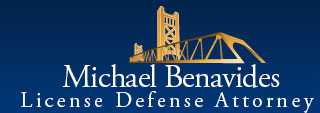Illegal drug use in a child care facility is a basis for revocation of ones license by the California Department of Social Services. A case brought against a licensed family child care home owner needs to be proved by a preponderance of the evidence by the Complainant. Drug use in the facility is not just limited to the individual that holds the license, but any other individual within the facility, employee or not. The user does not have to be actively involved in the operation of the facility whatsoever. Allowing an individual in the facility to store or use an illegal substance for an extent of time will be cause for suspension or revocation of a license. The precedent in this area has concluded that not just the use of an illegal drug, but also the presence on the facilities property, presents a situation in which children who attend the facility are in danger within California Code of Regulations, title 22, section 102417, subdivision (g). This statute states that “The home shall be free from defects or conditions which might endanger a child. Safety precautions shall include but not be limited to: Poisons…and other items which could pose a danger if readily available to children, shall be stored where they are inaccessible to children.”
The Concern
The presence of illegal substance is contrary to the health, welfare or safety of the individuals who are receiving the service of the facility. The greatest cause of harm is in the chance that a child in care accidentally finds the drugs in the facility, or comes into contact with the user while consuming the substance. Actual harm to a child is not required for the revocation of a license.
Analysis
The Department of Social Services will consider some relevant evidence when making their decision. These include the knowledge of the licensee as to the extent of the drug use by the user, the reputation of the licensee by clients, and whether a client has complained about such a problem. Evidence of reputation or character for the drug user, such as their propensity of responsibility is evaluated. Most importantly however, the Department of Social Services will take mitigating steps by the licensee into consideration when making their decision. Depending on the severity and duration of the drug use in the facility, the Department will weigh the mitigating steps taken against the aggravating facts, and risk that has been presented in the violation. Attempting to remove the drugs, or remove the drug user from the facility are some examples. If the drug user is a permanent resident of the facility, then seeking rehabilitation for that individual will be a proactive step that the Department will take into concern. Based on the totality of the evidence, establishing that the licensee would be able to effectively put an end to the illegal drug use in the facility is meaningful in order to ensure the protection to the public health, safety, and welfare of the clients and their children.
License Defense
Representation by an attorney is essential when facing an allegation of drug use in a licensed facility. The attorney may be able to negotiate a settlement that permits continued operations under a probationary license. To learn more about representation by child care license defense attorney Adam Garcia call (916) 596-1018.



